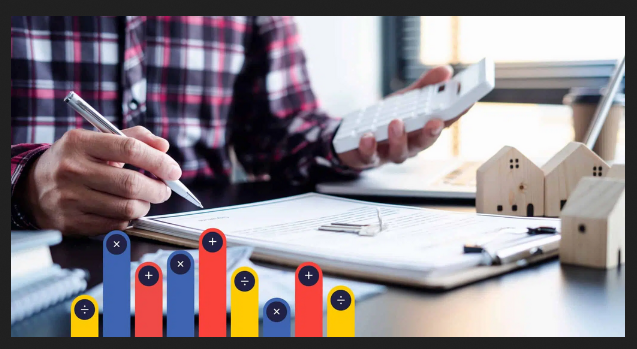Although it varies depending on the lender and kind of mortgage, in general, a standard mortgage requires a credit score of at least 680 to get approved. Some lenders might go a little lower, but higher is always preferable. It’s ideal to have a credit score of at least 700 when applying for a mortgage.]
It could seem difficult for someone with low income to get a mortgage. Therefore, don’t give up; it is not impossible. Actually, you have a lot of possibilities at your disposal. In this blog post, we’ll discuss some tips and tricks for obtaining a mortgage in Canada even with a low salary. Continue to read.

Use government program to apply for a mortgage.
In Canada, there are various programs available to assist low-income individuals in obtaining mortgage approval. The Canada Mortgage and Housing Corporation’s (CMHC) Affordable Housing initiative is one example.
This program provides financial support to low-income individuals and families who wish to purchase their first house or upgrade to a better one. Under the program, you can get up to $15,000 in interest-free loans. But, in order to receive the whole amount, you must live in the property for the entire year.
Increase your down payment.
You will have a higher chance of being approved for a mortgage if you are able to accumulate enough money for a larger down payment. A larger down payment might also make it possible for you to get approved for a mortgage with a lower interest rate, saving you money over the course of your loan. To rapidly understand about the many lending programs available and the potential savings they might bring to your mortgage payments, check out our free mortgage calculator.
Consider getting a co-signer.
If you are unable to qualify for a mortgage on your own, a co-signer may be able to assist you get accepted. A co-signer is someone who agrees to assume responsibility for your mortgage payments if you are unable to make them.
Get pre-approval.
Getting pre-approved might help you focus your search for a home. You can use it to get a solid idea of how much money you can borrow and spend on a home. By enabling you to focus on houses within your budget, it eventually saves you time and labor.
You might move more quickly when you find the ideal property if you are pre-approved. Many of the necessary documents and paperwork will already be in place. To be pre-approved for a mortgage right away, click here!
Speak with a mortgage broker.
You can get help from a mortgage broker to understand your options and get through the mortgage application process. Additionally, they can help you find lenders that could be open to reviewing your application despite your low income. They compare interest rates, financing conditions, and repayment plans across a wide range of mortgage options to find you the best deal available.

You can also save a lot of time by working with a mortgage broker. Finding the best mortgage deal can be a difficult and time-consuming process. However, things will go much smoother and simpler if you have a mortgage broker on your side. You only need to choose among the best deals and solutions they find for you.
Premiere Mortgage Centers can help you live the life of your dreams!
Nothing should stand in the way of enjoying the life you desire. Mortgage brokers have vast industry experience and knowledge to guarantee you get the best offer possible. When you engage with us, you can be confident that you will receive trustworthy opinions and advice from industry experts.
Understanding Canadian Mortgage Rates
One of the most significant decisions a man will make is whether to apply for a mortgage. The correct counsel could have a significant financial impact because there will be so many decisions and options throughout the course of the therapy. It is best to be ready by looking for a pre-approved contract before looking for a house.
This enables the borrower to set a buying cap. It will help to limit the home in the search to know how much the borrower is pre-approved for. There are many loan professionals in Canada that can help the borrower obtain the best rates and assist with the pre-approval procedure.
CanEquity Mortgage Corporation
Customers can obtain home loans from CanEquity, a nationwide Canadian mortgage lender, in all provinces and territories. More than 75 renowned lending experts are available to CanEquity across Canada. This enables CanEquity Mortgage to research the market for home loans and provide customers with the greatest alternatives, services, and rates. Additionally, they have a considerable amount of authority over obligation consolidation, no-down payment mortgages, and contract recharges.
Most of CanEquity’s benefits for house loans are totally free and can save the borrower hundreds of dollars in high premium and regular installment costs.
Choices for the first installment
Buying a home has never been easier, from using a Registered Retirement Savings Plan to making a down payment. Here are some advantages of first installment options for bad credit and regular installment protected home loans:

Standard home loans come with variable or fixed financing costs and call for a 20% down payment. Conventional home loans have the lowest conveyancing costs because they don’t need to be protected.
With lower down payments than traditional home loans, many lending experts are now providing secured house loans for both resale and new homes. They can be between 5% and 10%. It is necessary to protect these down-and-out installment contracts in order to account for the potential for installment default. The conveyancing fees are more expensive than with a typical home loan due to the addition of a protection premium.
Mortgage Types: Closed, Open, and Convertible
When searching for one, there are various sorts of home loans to take into account. Other factors, such as the borrower’s desire to reside in the home and loan fees, should be taken into account when choosing between an ordinary, open, or closed home loan.
For buyers who do not wish to move but will stay in the same place to live for an extended period of time, closed home loans are typically the best choice.
This form of home loan is typically seen to be the best for people who buy homes out of the blue because of the security of knowing the proper quantity of home loan installments over a set day and age. Loans for closed homes are typically offered with periods starting at a half year. The borrower must pay breakage fees to the loan specialist in order to pay off the adjustment or renegotiate the enthusiasm before the term is up.

Open house loans can be repaid in full or in part whenever you want, with no early termination costs. This can be a suitable choice if the borrower wishes to move as quickly as possible. These loans typically have higher interest rates because to their versatility.
The security provided by a convertible home loan is the same as that of a closed home loan, but it cannot be converted into a closed home loan without incurring fees. This enables the borrower to wait until they feel that the time is perfect to lock in the desired rate if they anticipate a decline in interest rates.
Home Loan Interest Rates: A Comparison of Fixed and Variable Rates
For the whole term of the loan, the financing cost for a house loan with a fixed rate is fixed. The borrower has the comfort that they will always know how much their monthly payments will be because the installments are predetermined for the entire duration. These mortgages can be closed with breakage costs charged if paid off before the development of the advance, or they can be opened with no breakage fees assessed at payback.
A borrower can maximize the benefits of their low home loan rates if they secure a settled house loan. Installments won’t increase whether the prime rate increases or decreases. The borrower has the option to weigh several plans and decide to pay back a portion of the mortgage early.

Regardless of changes in financing expenses over the course of the mortgage, the variable payment is constant. A larger amount of the installment goes toward the essential if the financing costs drop. Increased interest payments result from rising interest rates. They could be open or closed mortgages.
The variable rate contract gives the borrower the flexibility to benefit from lower loan costs and convert to a fixed rate contract anytime they see fit.
What You’ll Need for a Mortgage Application
If the following information is prepared, the borrower will be able to complete their home loan application more quickly:
- Social Security Number
- Name, phone number, and address of the company.
- Co-candidates’ social insurance numbers, business information, and dates of birth.
- All monthly earnings, including annuities, wages, ventures, rental earnings, and divorce settlements.
- Every month’s cost includes contract installments, leasing payments, divorce settlement, and so on.
- All benefits, including term stores, RRSPs, land, vehicles, and financial balance adjustments.
- All liabilities, such as auto payments, rent payments, advances, and Mastercards.
One of the most challenging parts of purchasing real estate, especially for first-time buyers, is saving for the dreaded down payment. However, there is a way to buy a house without having to put much money aside for a down payment. The following information will help you decide if a no-downpayment mortgage, sometimes referred to as a zero-down mortgage, is the best option for you to use in order to reach your real estate objectives.